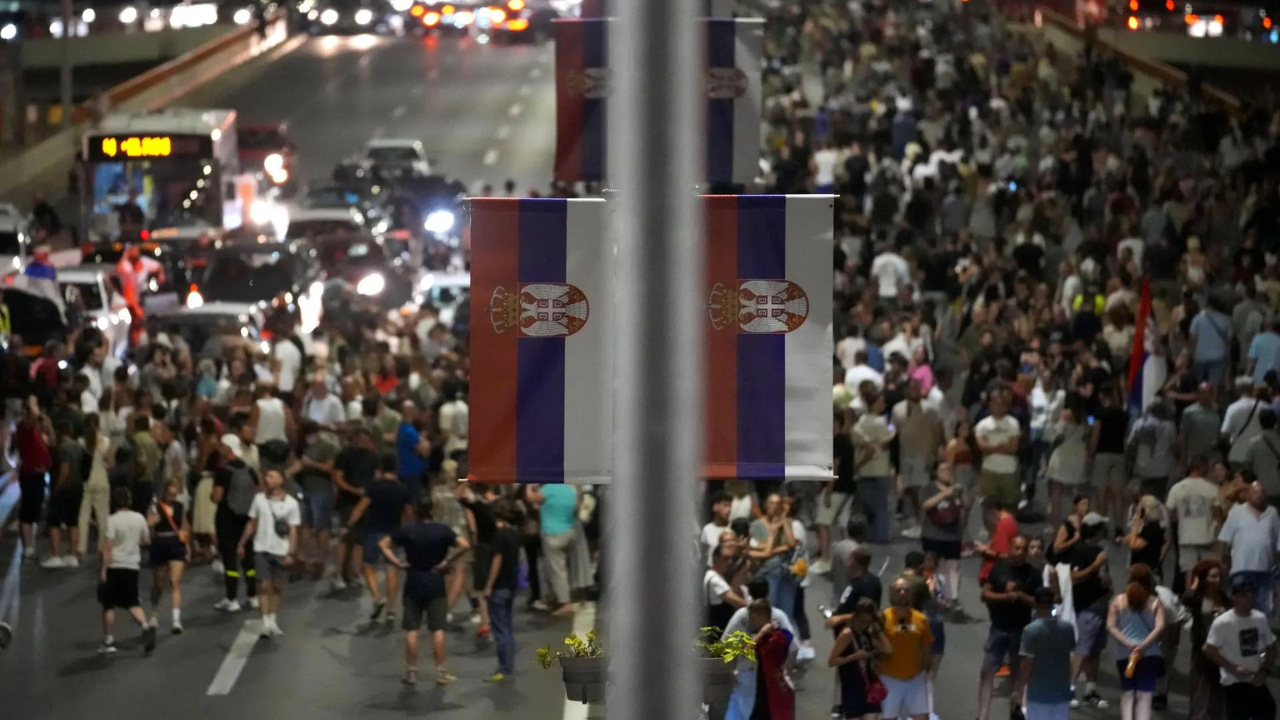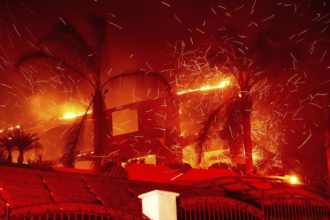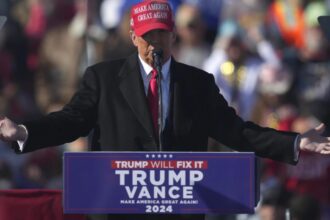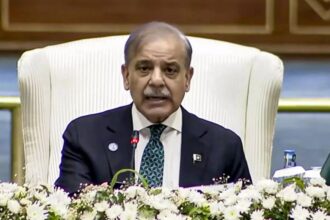Thousands of protesters gathered in Serbia’s capital Belgrade to voice their opposition to the revival of a controversial lithium mining project that is expected to play a crucial role in powering Europe’s transition to green energy.
Prior to the rally, two prominent protest leaders claimed they were briefly detained by security officials, who warned them that any attempts to obstruct roads during the demonstration would be deemed illegal.
The protesters chanted slogans such as “Rio Tinto get out of Serbia” and “You won’t dig” as they marched through the city center. The Interior Ministry later estimated the crowd size to be between 24,000 and 27,000 people.
The demonstrators eventually entered Belgrade’s main railway station, where they blocked tracks and disrupted traffic. Interior minister Ivica Dacic issued a statement, that the organizers and leaders had been cautioned by the police that their actions were not in compliance with the law, and that charges would be filed against all perpetrators.
Serbia possesses significant lithium deposits near the western city of Loznica, and a mining project being developed by the Anglo-Australian mining giant Rio Tinto has been a persistent political issue in the country due to its potential environmental impacts. The deposits were discovered in 2004, but the project was halted in 2022 following weeks of mass protests. However, the government recently revived the project after a court decision ruled that the order to revoke Rio Tinto’s permits was unconstitutional and unlawful.
The Serbian government has signed a memorandum of understanding with the EU, which is considered the first step in developing Serbia’s lithium resources. On July 19, President Vucic, German Chancellor Olaf Scholz, and EU energy commissioner Maros Sefcovic signed an agreement that would grant producers from EU member states access to raw materials mined in Serbia, including lithium. The deal aims to reduce the EU’s dependence on imports from America and Asia.
Lithium is a strategically valuable metal essential for electric vehicle batteries, making it crucial for the automotive industry’s shift towards greener production. However, the project remains unpopular among many Serbians due to concerns about water pollution and public health risks.
Protesters have vowed to continue their demonstrations and engage in civil disobedience if the government fails to pass a law permanently banning the mining of lithium and boron in Serbia by an August 10 deadline set by activists. Serbian President Aleksandar Vucic has repeatedly assured that no mining operations will commence until guarantees over environmental safety protocols are established.
If implemented, the $2.4 billion Jadar lithium project could meet 90% of Europe’s current lithium needs and position Rio Tinto as one of the world’s leading lithium producers. The Serbian government believes the lithium mine would boost the country’s economy, while environmentalists argue that the environmental costs would be too high.
Prior to the rally, two prominent protest leaders claimed they were briefly detained by security officials, who warned them that any attempts to obstruct roads during the demonstration would be deemed illegal.
The protesters chanted slogans such as “Rio Tinto get out of Serbia” and “You won’t dig” as they marched through the city center. The Interior Ministry later estimated the crowd size to be between 24,000 and 27,000 people.
The demonstrators eventually entered Belgrade’s main railway station, where they blocked tracks and disrupted traffic. Interior minister Ivica Dacic issued a statement, that the organizers and leaders had been cautioned by the police that their actions were not in compliance with the law, and that charges would be filed against all perpetrators.
Serbia possesses significant lithium deposits near the western city of Loznica, and a mining project being developed by the Anglo-Australian mining giant Rio Tinto has been a persistent political issue in the country due to its potential environmental impacts. The deposits were discovered in 2004, but the project was halted in 2022 following weeks of mass protests. However, the government recently revived the project after a court decision ruled that the order to revoke Rio Tinto’s permits was unconstitutional and unlawful.
The Serbian government has signed a memorandum of understanding with the EU, which is considered the first step in developing Serbia’s lithium resources. On July 19, President Vucic, German Chancellor Olaf Scholz, and EU energy commissioner Maros Sefcovic signed an agreement that would grant producers from EU member states access to raw materials mined in Serbia, including lithium. The deal aims to reduce the EU’s dependence on imports from America and Asia.
Lithium is a strategically valuable metal essential for electric vehicle batteries, making it crucial for the automotive industry’s shift towards greener production. However, the project remains unpopular among many Serbians due to concerns about water pollution and public health risks.
Protesters have vowed to continue their demonstrations and engage in civil disobedience if the government fails to pass a law permanently banning the mining of lithium and boron in Serbia by an August 10 deadline set by activists. Serbian President Aleksandar Vucic has repeatedly assured that no mining operations will commence until guarantees over environmental safety protocols are established.
If implemented, the $2.4 billion Jadar lithium project could meet 90% of Europe’s current lithium needs and position Rio Tinto as one of the world’s leading lithium producers. The Serbian government believes the lithium mine would boost the country’s economy, while environmentalists argue that the environmental costs would be too high.
Source : Times of India






